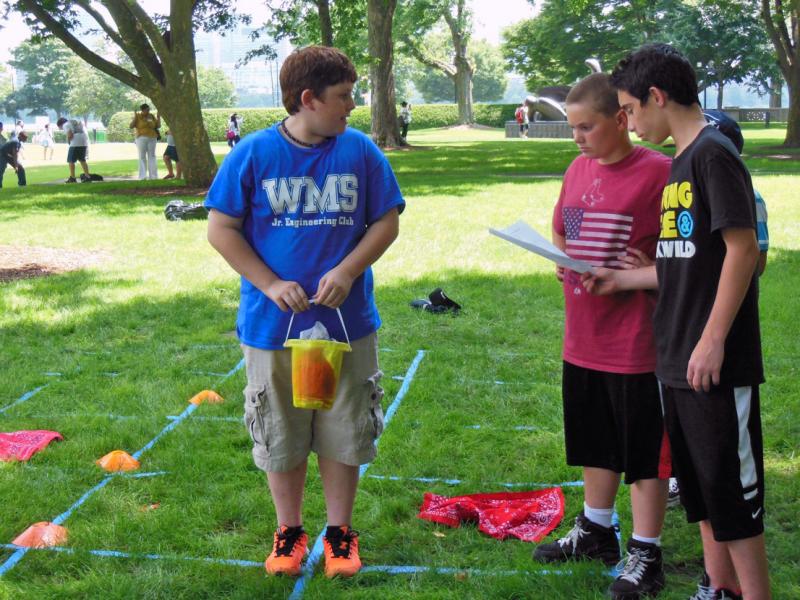Wareham students team with MIT, NASA in summer competition
Wareham Middle School students have spent the summer programming a robot to clean debris from space.
As part of Zero Robotics, a five-week summer program hosted by the Massachusetts Institute of Technology, students have been learning C++ computer programming and using it to control "RetroSPHERES" satellites in a simulation game during which they must destroy dust clouds that endanger space missions.
The game had schools competing head-to-head with other schools in the program to tackle various tasks while their satellites completed missions in the game.
Eliminating space debris is a problem that NASA and the U.S. Defense Advanced Research Projects Agency (DARPA) are working to solve in real life, and perhaps in years to come, these students will be the ones to do it!
"Every move they do is a new function in the program," explains teacher Nichole Stahmer, who is leading the class of 15 sixth-, seventh-, and eighth-grade students.
Stahmer, who had never herself coded, noted: "We all learn together. I'm more of a coach. … I've heard many of them say, 'this is fun,' and not many people think coding is fun."
Students feel like they're playing a game, but they're also honing computer, problem-solving, and engineering skills.
Wareham Middle School, which participated as part of the district's "CARE" summer program, is one of 26 teams in seven states that are competing in the tournament. There are just six schools in Massachusetts competing.
Elimination rounds were held, and the top-scoring team from each state will watch their code run the real SPHERES satellites at the International Space Station via live transmission.
The Wareham team tied with three other Massachusetts schools, with Malden taking the top spot. The students will travel to MIT later this month to watch the live transmission with their fellow students.
"Although we didn't come in first, the students did excellent," said Stahmer, noting that student Luke Still "managed to get the SPHERE to the finish line and allow WMS to score better than we had expected."
Figuring out which codes make the robot do necessary tasks was challenging, but the students persevered.
"We have the students who have the smarts, and they can do it. They know, as well as I do, that once they start something, they have to finish it," explains 8th-grader Mitchell Lavoie, who wrote to MIT to explain why Wareham students could handle the tough summer program. "Long processes can turn into great success."
Taz Thatcher, an 8th-grader, said he enjoyed the challenge. "It gives me a different perspective on the scientists who make the SPHERES."
Aaron Murdock, who is going into 6th grade, had never programmed before, but discovered: "I like to program stuff."
His favorite aspects of Zero Robotics? "Programming and making our SPHERES move and rotate around the axis."
Phillip Sprague, who is going into grade 7, said the program has gotten him even more interested in a field he hopes to pursue.
"I like gaming and building stuff," he noted. "I'm thinking of becoming an astronaut, maybe, or an astronomer."
Kyle Campanini, who will be a 6th-grader in the fall, put it simply:
"I'm learning stuff that I never even knew about. It's a lot of fun."
Joey Still, a 6th-grader, echoed that sentiment. The students went on a trip to MIT for a campus tour in July, and their eyes were opened to other new things there.
"We saw dry ice," said Still, explaining the properties of solid carbon dioxide. "I'd never even heard of it!"
For more information about Zero Robotics, visit www.zerorobotics.org.















